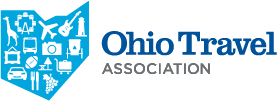Complete Story
07/09/2021
Update 07/09/21: Ohio's Travel Industry and the Coronavirus (COVID-19)
Travel Research Updates
AMERICAN TRAVELERS FEELING THE PANG OF INDUSTRY'S LABOR SHORTAGES; SUMMER TRAVEL PLANS STILL HOLDING STRONG DESPITE THIS
Key findings from Destination Analysts fielded the week of June 28, 2021
- Optimism about the virus’ course in America declines: Now, 16.2% expect the coronavirus situation to get worse or much worse in this country in the next month (up from 10.9%). This may also be causing a downturn in their openness to travel inspiration (now 70.9% from 73.1% last week) and confidence in their ability to travel safely in this environment (47.8% from 52.2%).
- Concerns about the safety of others and ourselves as well as worries about COVID-19 variants are the most important considerations that keep Americans from traveling more right now: In fact, over 40% of travelers say these three aspects are important or extremely important considerations that keep them from taking more trips.
- Nevertheless, summer travel plans hold strong: Over 77% of Americans plan to travel for leisure in the next 3 months—averaging 1.9 trips in this timeframe. 90% of these summer travelers expect to take at least one overnight trip. For these overnight trips, the most likely accommodation types will be the private home of a friend/relative (34.6%), 3-4 star hotels (32.7%) and budget hotels/motels (18.5%).
- Despite unsatisfactory travel experiences in recent months, some Americans are feeling more enthusiastic about travel: A look back at the past 3 months shows that 44.6% of Americans have taken a overnight trip. Nearly 70% of these travelers participated in at least one leisure activity with the most “close to normal” experience being dining in restaurants (53.2% rating it as very normal or mostly normal and 60.3% were satisfied or very satisfied with their restaurant experience). In contrast, well below half of these travelers felt their experience in hotels, at events, in attractions, onboard commercial airlines and in airport businesses were normal or satisfactory. Still, though 28.2% of travelers said their most recent travel experience has made them more enthusiastic to travel and 22.9% say their experiences have made them sympathetic to the travel industry.
- Americans are feeling the pangs of the travel industry’s labor shortages: 43.4% of recent overnight travelers agree that on their most recent trip it seemed as though travel industry businesses were having trouble providing adequate service to travelers. This has impacted future travel for some Americans, with 17.3% saying their recent travel experiences have led them to do more research, 14.9% will not plan as much travel and 11.8% say they have changed the destination or attraction for an upcoming trip.
- Travel, tourism and recreation are among the top industries Americans are most interested in working in: Presented with a list of 15 different industries and asked to assume a job opportunity matched their skills and experience, 12.9% of all Americans surveyed said they would be interested in working in the travel, tourism and recreation industry. The same percentage selected arts and entertainment (12.9%), while 11.7% selected information technology.
MASKS AND SAFETY PROTOCOLS REMAIN AN IMPORTANT REQUIREMENT FOR TRAVELERS TO FEEL COMFORTABLE
Key findings from Colleen Dilenschneider published July 7:
- Parents of young children generally still prefer mask mandates.
- Changes in masking policies are impacting their intentions to visit cultural entities.
- With that said, audiences have been divided: desires for mask requirements remain generally unchanged for people with children under 13 in the household, while desires to ditch the masks rapidly increase for others.
- Potential attendees to cultural entities tend to be more educated, and also more wary of the coronavirus. This makes the stark contrast between potential attendees with and without young children even more notable.
- As of July 2nd, approximately 43% of high-propensity visitors to cultural entities in the United States believe that organizations should require all visitors to wear a mask. That’s down from 53% on June 18th, 62% on June 4th, and 67% on May 21st.
- The decrease in the percentage of likely visitors requiring masks to visit is almost entirely driven by people who do not have children under 13 in the household.
- This research doesn’t mean that entities without mask requirements should expect to see no children on site. After all, nearly 32% of US adults with children in the household do not think an entity should require all visitors to wear a mask.
- People with young children in the house have notably decreased intentions to visit cultural entities for the next few months.
Travel Research Round-Up
View the latest trends and traveler sentiments in this one-page research summary.


